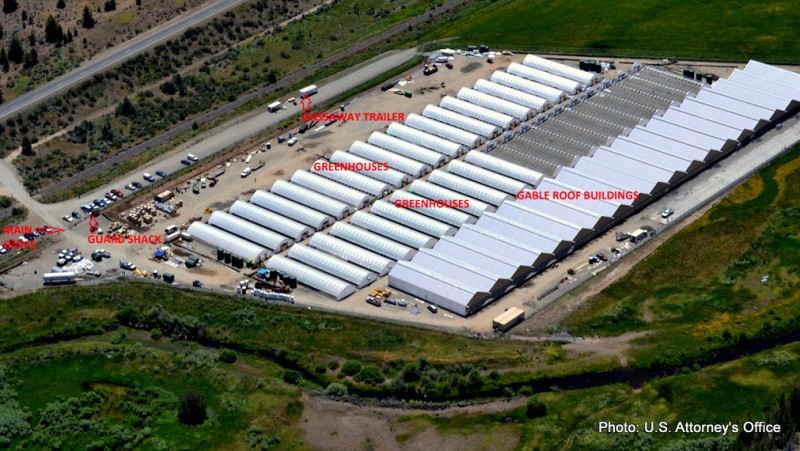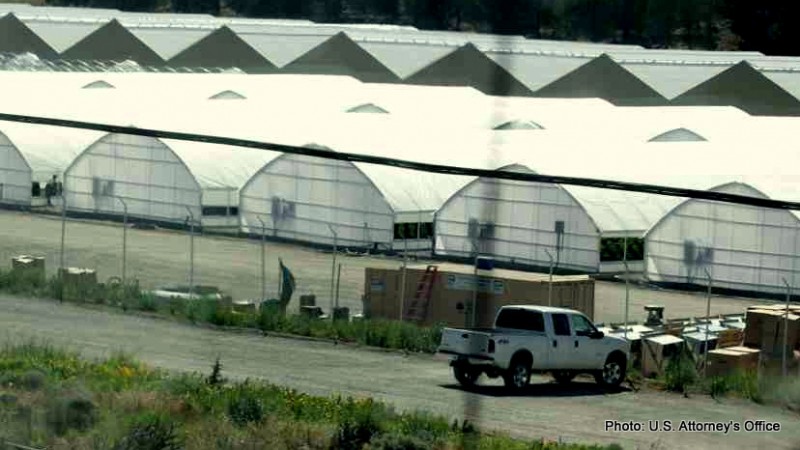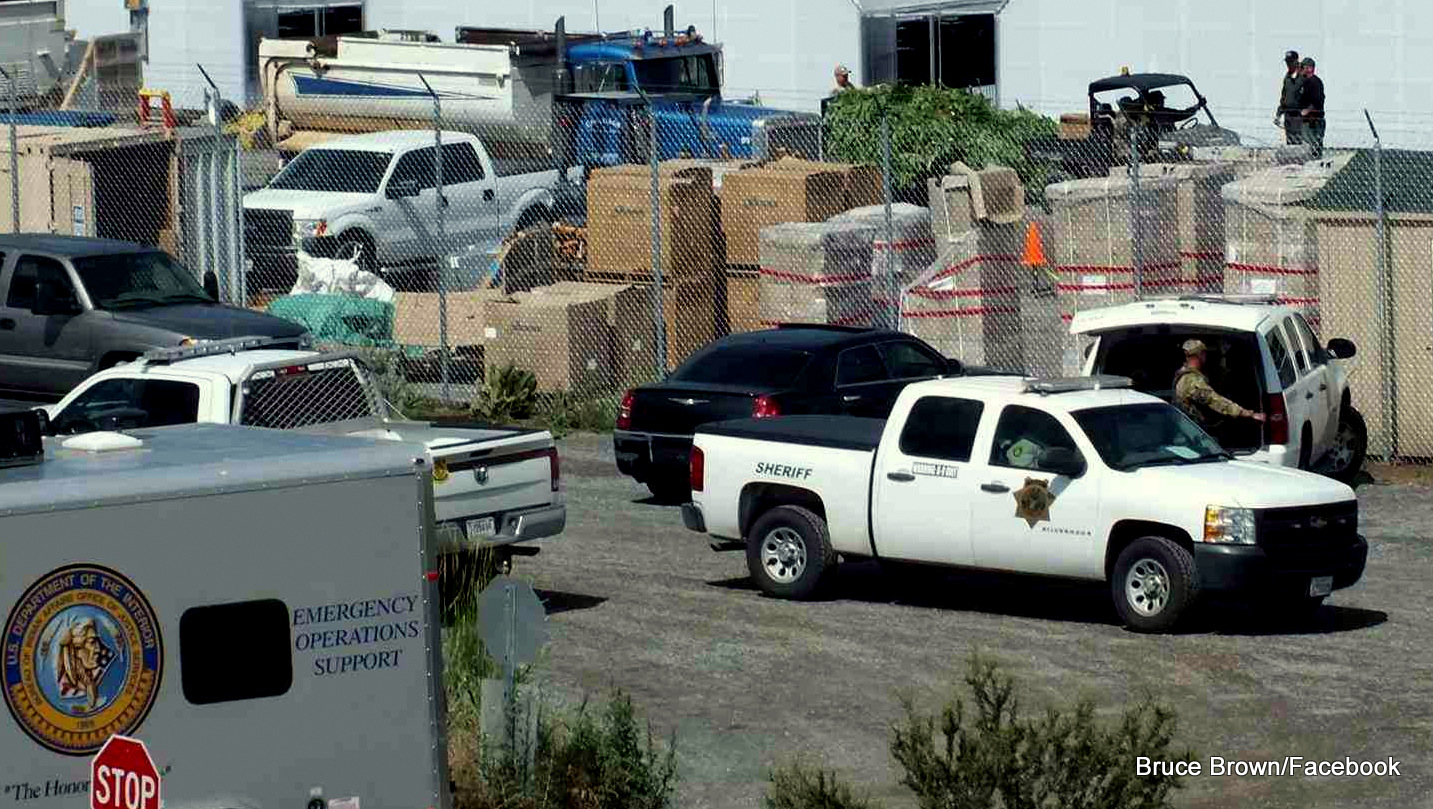Originally published at MintPress News.
ALTURAS, Calif. — Last week, federal agents raided land belonging to two federally-recognized Native American tribes, and seized 12,000 cannabis plants from their properties. The bust came despite new federal guidelines designed to allow limited marijuana cultivation by indigenous groups in the United States.
The agents arrived at the properties at the far northern edge of California on July 8, ultimately seizing the plants and over 100 pounds of marijuana ready for use from two buildings — an event center belonging to the Alturas Rancheria and a greenhouse belonging to the Pit River tribe. Benjamin Wagner, the U.S. district attorney in Sacramento, led the raid.
“The volume of marijuana that the XL facility alone was capable of producing … far exceeds any prior known commercial marijuana grow operation anywhere within the 34-county Eastern District,” Wagner said in a statement quoted by The Sacramento Bee on the day of the bust.

The Justice Department announced in December that it would allow Native American tribes to choose whether to legalize marijuana on their reservations, which are considered sovereign nations for many aspects of lawmaking and governance. Under the new regulations, tribes are free to maintain a ban even if the states they are in have passed medical cannabis laws or broad legalization, but the opposite is not true: Tribal efforts at legalization aren’t allowed to overturn state laws that criminalize marijuana.
In his statement, Wagner accused the Pit River Tribes and the Alturas Rancheria, a community of just five registered members, of taking their growing operations too far, and said he’d previously warned tribal leaders they were acting “in a manner that violates federal law, is not consistent with California’s Compassionate Use Act, and undermines locally enacted marijuana regulations.”
The grow operation was funded by Grand River Enterprises, a huge Canadian tobacco business which distributes its products on Native American and First Nations reservations, and the involvement of a foreign investor may be another factor that led to the bust. According to The Associated Press, the Bureau of Indian Affairs also supported the raid.

The AP report revealed that the raid is part of a family dispute over control of the small tribe, which also owns a casino, and the feds were tipped off by the sister of the Alturas Rancheria chairman.
The bust could spell trouble for other Native American groups interested in legalization, like South Dakota’sFlandreau Santee Sioux Indian Reservation, which became the first reservation in the U.S. to legalize cannabis in June. However, South Dakota features harsh laws for marijuana use and cultivation, with mandatory minimum sentences that reduce judicial flexibility when hearing cases. People can be charged with a misdemeanor and face up to a year’s imprisonment just for being “in a room where marijuana is being used or stored.”
This plant seizure in northern California is one of a growing number of cases in which differences in federal and local cannabis laws leave Americans in serious legal jeopardy. For example, a U.S. Marine veteran faces life imprisonment in Oklahoma for using marijuana to treat his post-traumatic stress disorder, even though he qualifies for medical marijuana in California and his treatment is supported by Veterans Administration regulations. Even in places that have legalized medical marijuana, enforcement can vary a great deal, as a Michigan patient discovered last July when police raided her home and took all her possessions, “even her children’s iPads.”
